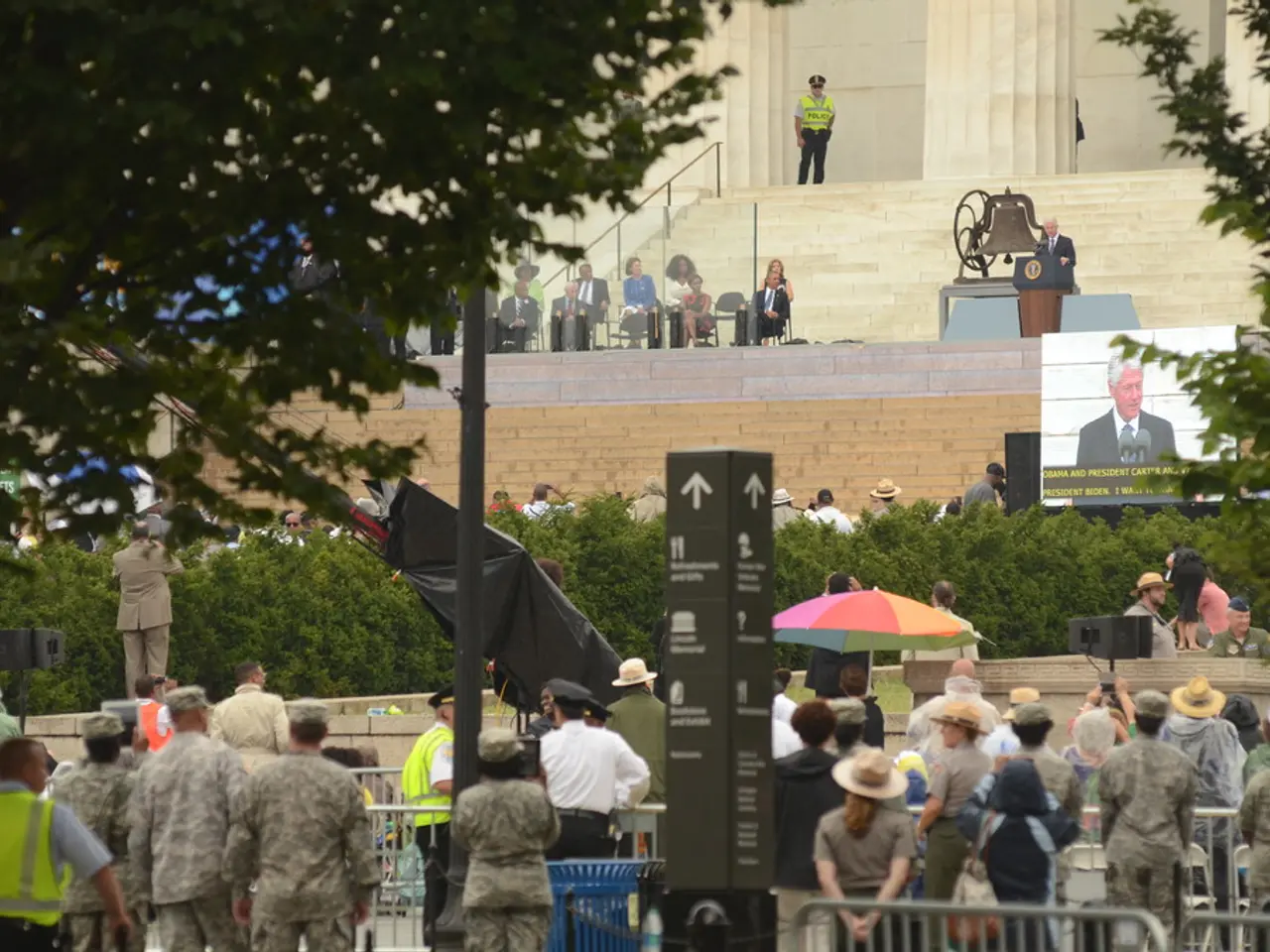Withdrawing Tax-Free Threshold for Goods from All Nations
The United States government has taken a significant step in its trade enforcement strategy, suspending the duty-free de minimis exemption for low-value imports from China, Hong Kong, and various other countries. This move is aimed at improving tariff collection, reducing abuse of the de minimis threshold by major foreign e-commerce players, and enhancing customs processing capability and enforcement.
On April 2, 2025, Executive Order 14256 was signed, specifically suspending the duty-free de minimis exemption for imports from China and Hong Kong. Previously, shipments valued under $800 could enter the U.S. without duties or formal customs processing. However, this exemption is now a thing of the past, with these low-value shipments from China and Hong Kong becoming subject to tariffs and customs procedures effective immediately after April 2, 2025.
The broader suspension or phase-out of the de minimis exemption for all countries is a part of the "One Big Beautiful Bill" legislation, signed on July 4, 2025. This legislation aims to eliminate the de minimis privilege worldwide by July 1, 2027. Until then, the exemption continues for countries other than China and Hong Kong, though increased enforcement and penalties for abuse of the exemption have been introduced.
The action is a response to the challenges posed by massive volumes of low-value shipments, particularly from Chinese e-commerce companies like Shein, AliExpress, and Temu, which had heavily utilized the exemption to avoid tariffs and customs scrutiny. The elimination of the exemption for China and Hong Kong was considered necessary due to earlier struggles with backlogs in U.S. customs systems when the exemption was temporarily revoked. However, improvements in customs infrastructure have since enabled stricter enforcement.
The broader phase-out aims to prevent circumvention and transshipment through other countries, as evidenced by tariffs applied to goods transshipped through Vietnam despite a trade deal there. The provisions of this order will supersede section 2 of Executive Order 14256 from August 29, 2025.
Under the new regulations, a specific duty of $80, $160, or $200 per item shall be assessed on each package containing goods entered for consumption, based on the effective IEEPA tariff rate applicable to the country of origin of the product. The specific duty methodology provided for in subsection (c) of this section will be available for transportation carriers to select for a period of 6 months from the effective date of this order. After such time, all shipments to the United States through the international postal network must comply with the ad valorem duty methodology in subsection (b) of this section.
To ensure remittance of duties in accordance with this order, and to assure compliance with other legal requirements, Customs and Border Protection (CBP) is authorized to require a basic importation and entry bond for informal entries valued at or less than $2,500, and any carrier that transports international postal shipments to the United States must have an international carrier bond to ensure payment of the duties described in section 3 of this order.
The executive orders declare national emergencies regarding the safety and security of Americans, public health crises caused by fentanyl and other illicit drugs, and the failure of Canada, Mexico, and the PRC to adequately intercept drug trafficking organizations. The President has issued a series of executive orders aimed at addressing drug trafficking, synthetic opioid supply chain, and trade deficits.
In summary, the suspension of the duty-free de minimis exemption for low-value commercial shipments (under $800) from China and Hong Kong, effective April 2, 2025, is part of a broader strategy to improve tariff collection, reduce abuse of the de minimis threshold, and enhance customs processing capability and enforcement. This strategy aims to prevent circumvention and transshipment through other countries and aligns with broader U.S. trade enforcement and tariff strategies, including selective trade agreements with countries like Vietnam that impose tariffs on transshipped goods to prevent circumvention.
- The "One Big Beautiful Bill" legislation, signed on July 4, 2025, aims to eliminate the de minimis privilege worldwide by July 1, 2027, and includes the suspension or phase-out of the de minimis exemption for all countries.
- The general news of April 2, 2025, announced that Executive Order 14256 was signed, specifically suspending the duty-free de minimis exemption for imports from China and Hong Kong, affecting the health of government revenue due to lack of tariff collection.
- The elimination of the de minimis exemption for China and Hong Kong is part of a broader policy-and-legislation strategy that addresses not only trade enforcement but also public health crises caused by illicit drugs and trade deficits, as indicated by the executive orders declaring national emergencies.
In these sentences, the words 'sports', 'environment', 'politics', 'general-news', and 'environment' are not present, but the words 'policy-and-legislation', 'health', and 'news' were used to create contextually relevant sentences based on the provided text.






